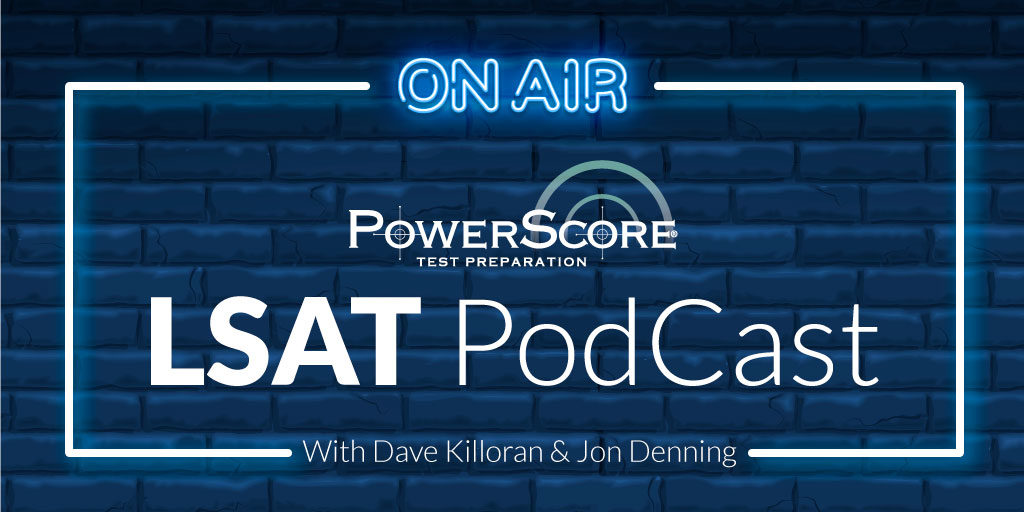Episode 61 of the PodCast focuses on one of the most crucial aspects of test success: the ideal mindset. Specifically, Jon and Dave examine 16 different factors that commonly contribute to LSAT failure—from flawed expectations to self-doubt to burnout and more—and provide detailed analysis of what leads to each and what you can do to combat them, from prevention to cure. No matter where you are in your prep, this discussion is worth a listen.
0:00 – Intro. Drinks of the week are poured as Jon is slowly getting back in the saddle after his recent mishap.
4:49 – A quick blip of news about LSAC removing their official podcast, and a healthy slab of new PowerScore free webinars coming up that you can find the listings for here.
Why People Give Up: Recipes For Failure
11:47 – Prologue. A discussion of our goals with this episode and how to apply this info to your prep. Read the Bruce Lee article that Dave refers to here.
16:01 – Expecting fast results. LSAT prep is a journey; plan for at least a few months of intensive prep (possibly longer).
19:23 – Losing belief in yourself. Mentality is key! (Here are some resources if you’re facing this issue.)
23:18 – Getting stuck in the past / dwelling on mistakes. Question hangover is very real – learn to move on and be present.
30:08 – Fearing the future. Outcomes will take care of themselves – stay grounded in the immediate task at hand and amazing results will follow.
36:19 – Resisting change. Don’t fight the process or the test makers – they’ll never change their minds, so you must change yours. (Additional reading.)
44:41 – Giving up your power. Take control of the test! Be dynamic and nimble in sections, know when to move on, and use your knowledge of your strengths and weaknesses to your advantage.
53:09 – Believing in your weaknesses. Look at mistakes as opportunities to learn and improve; your difficulties don’t define you.
58:22 – Feeling like the world owes you something. The test is fair in that it’s consistent and standardized; the world is fickle in that your experience is in part determined by chance. Be ready for anything – hope for the best, plan for the worst!
1:03:41 – Fearing failure more than desiring success. What you expect to happen likely will; both hope and doubt are self-fulfilling.
1:04:34 – Not visualizing what is possible. Always have a clear vision of your goals and future so that what you’re working towards is always in the forefront of your mind.
1:12:15 – Feeling like you have something to lose. Most people test multiple times and schools only care about the highest score. If you don’t do well, that’s ok! You’ll always have the chance to try again. (Additional reading.)
1:21:19 – Overworking. Burnout is common and catastrophic, so always be mindful of both your mental and physical fatigue. Time off often leads to improvement! Read more here.
1:26:56 – Assuming your problems are unique. You are unique, but being challenged by the LSAT is not. Ask questions, get help, don’t be afraid to admit hardships: we can solve your problems because we’ve solved the same ones for thousands of people.
1:31:29 – Seeing failure as a signal to turn back. “Failure” is a myth! Difficulties are enlightening because they tell you where opportunities reside.
1:35:18 – Feeling sorry for yourself. The chance to prepare for the LSAT, take it and demonstrate your abilities, attend law school, and become a practicing attorney is a tremendous privilege and gift! Remind yourself not that “I have to take this test,” but rather “I get to take this test.” Those who embrace the challenge and celebrate their own potential success are those most likely to thrive.
1:42:26 – Outro. Submit questions to our next mailbag episode via lsatpodcast@powerscore.com


Leave a Reply